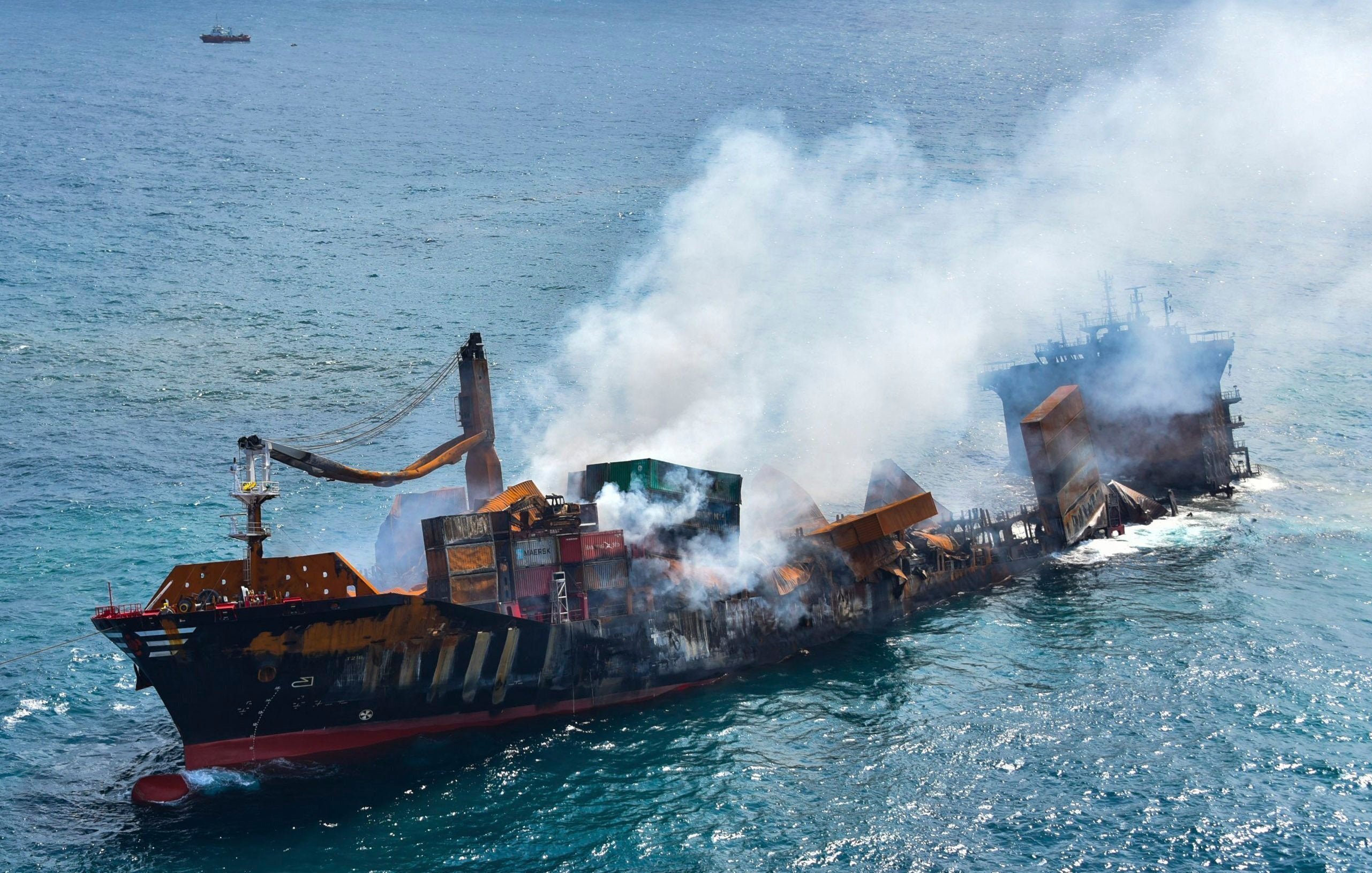Sri Lanka ship disaster: Sinking cargo vessel threatens to leak plastics, oil and nitric acid
Environmentalists say impact of ecological damage could last for years

A smouldering cargo ship carrying tonnes of chemicals is sinking off Sri Lanka’s west coast, officials said, triggering fears of an oil and chemical spill that could result in one of the worst ecological disasters the country has ever seen.
MV X-Press Pearl, a Singapore-registered cargo ship, has been on fire for over two weeks now, and began sinking on Wednesday in the sea off Colombo, despite the round-the-clock efforts of the navy and coastguard to stabilise it.
Experts have warned of an environmental catastrophe, with hundreds of tonnes of chemicals aboard the ship. The vessel is laden with substances including nitric acid, and is thought to be carrying up to 350 metric tonnes of oil in its tanks.
The Sri Lankan authorities have denied any leaks so far. “There is no oil leak from the ship yet, but arrangements are in place to deal with a possible spill. That is the worst-case scenario,” navy spokesperson Indika De Silva said.
However, activists fear the shipwreck could leak hazardous chemicals. “The oil spill can have lasting impacts on the sea and marine life,” Dharmesh Shah, an environmentalist and public policy analyst, said. “It poses a great risk to the biodiversity of the area, as well as to mangroves.”
“With a chemical accident, the major issue is transparency,” he added.
The operator of the ship said in a statement that the rear of the vessel had hit the sea floor off the coast of Colombo on Wednesday, and that “the forward section is settling down slowly”.
“Salvage workers will remain with the vessel to monitor the ship’s condition and oil pollution, if any. The immediate focus is to minimise any further damage to the environment,” operators X-Press Feeders said, adding that they believe most of the cargo was incinerated during the fire.
Sri Lankan authorities tried to tow the ship further from the coastline, but abandoned the attempt after the vessel began to sink. Images of the vessel shared by the Sri Lankan navy show the charred body of the ship partly submerged in the water, with smoke flowing out.
Apart from a potential oil spill, one of the biggest concerns is the presence of millions of plastic pellets on the ship. Fishing in the area has been suspended, while navy personnel have collected large quantities of toxic waste from Sri Lankan beaches.
Dharshani Lahandapura, head of the country’s Marine Environment and Protection Authority (MEPA), said the microplastic pollution could cause ecological damage to the Indian Ocean island for years to come.
Mr Shah said that the plastic waste from the ship adds to the already massive quantity of plastics in the sea, and “could be consumed by fishes and marine mammals”. Several coastal villages have reported finding the remains of fish and other marine organisms on the shore, images of which went viral on social media.
“What we see right now is all the stuff that has been washed up ashore. A lot of it settles at the bottom,” said Mr Shah.
Earlier reports state that there was a leak of nitric acid on the ship, causing it to be denied entry to the ports of Hamad in Qatar and Hazira in India. The company said that “the advice given was there were no specialist facilities or expertise immediately available to deal with the leaking unit”.
An investigation has been launched, both criminal and civil, into how the fire started. As well as Sri Lanka, authorities in nearby countries are also bracing for an oil leak. Singapore has launched its own inquiry into the incident.
Join our commenting forum
Join thought-provoking conversations, follow other Independent readers and see their replies
Comments
Bookmark popover
Removed from bookmarks